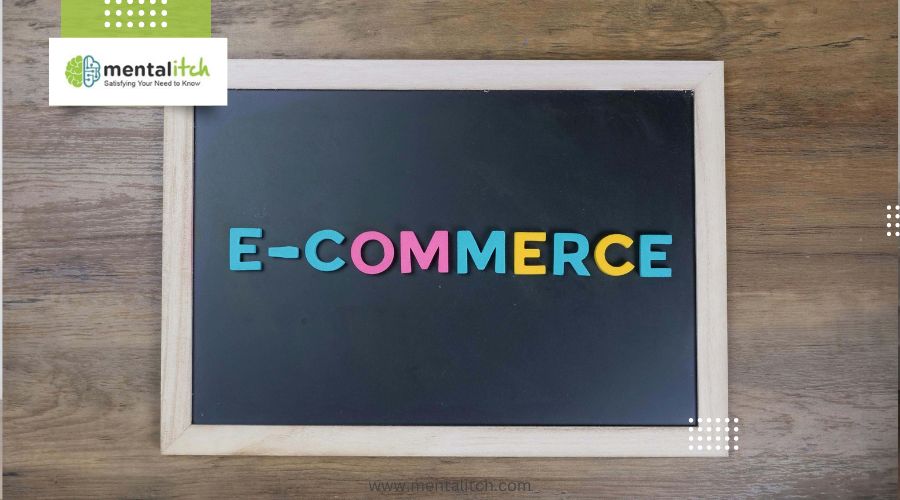Years ago, if you wanted to purchase something new, you had to visit a physical store to complete that purchase. Now, it is hard to imagine a time when you could not complete a transaction on the internet. In fact, e-commerce is so popular that it is the primary method of shopping completed by over 0 percent of consumers on a daily basis.
For this reason, a business can hardly expect to survive as solely a brick-and-mortar store. In fact, business owners around the world would likely advise that a strong presence on the web is an essential ingredient for a successful business in today’s market.
What is e-Commerce?
E-commerce, short for electronic commerce, refers to the buying and selling of goods and services using the internet and the transfer of money and data to execute these transactions. It’s a digital marketplace that has transformed the way businesses operate and consumers shop. E-commerce allows customers to purchase almost anything from the comfort of their homes or on the go, broadening the reach of traditional retail.
This modern shopping method encompasses a wide range of transactions, from ordering a book online to booking a service or downloading software. It’s not confined to retail; e-commerce also includes online auctions, payment gateways, online ticketing, and internet banking. The convenience it offers, such as 24/7 availability, a wide selection of products, and the ability to compare prices and reviews, has contributed to its exponential growth.
Businesses utilize various platforms for e-commerce, including their websites, online marketplaces like Amazon and eBay, and social media channels. This diversity in platforms helps businesses reach more customers than they ever could with a physical storefront alone. The evolution of e-commerce has also led to the development of mobile commerce, or m-commerce, where transactions are conducted via smartphones and tablets, further enhancing the convenience for consumers.
Why e-Commerce Matters
E-commerce has reshaped the landscape of business and consumer behavior, becoming an essential element of the global economy. Its significance extends beyond convenience, impacting everything from small businesses to multinational corporations. Here’s why e-commerce matters today.
Customization
When businesses were limited to face-to-face transactions, keeping track of the modern demands and customer requests was a tough task to accomplish. However, with the advancement of technology, customers can complete extremely specific searches on the internet for the items they want or need.
The benefit for the business owner is that more information can be compiled and analyzed from customer searches and activity on your website. This valuable information can help to direct your business in the right direction for future purchase orders and improve customer satisfaction.
Increased Profits
With the internet as an option for buying and selling goods and services, your customer base moves from local to global. Imagine the difference in profits that you could make in the year if your customers were able to grow by a modest margin of, say, 15%.
Further, you can actually partner with similar businesses to share deals and offers with customers who may be mutually interested in what you have to offer. These types of relationships will help to bring in new customers and increase your potential for both increased traffic and increased profit.
These increased profits can help you to achieve other business goals. Do you need to get a commercial vehicle loan? Do you have a goal of growing your inventory significantly? No matter what your goals are for the business, e-commerce is one of the fastest ways to reach those financial goals.
Global Reach
E-commerce breaks down geographical barriers, allowing businesses to reach customers worldwide with minimal effort. This global accessibility opens up new markets and opportunities for growth that were previously unavailable to traditional brick-and-mortar stores.
Agility and Scalability
E-commerce businesses can quickly adapt to market trends, customer feedback, and changes in demand. They can also scale operations up or down without the constraints of physical space, allowing for more efficient management of resources.
Access to Data
E-commerce platforms can collect detailed data on customer behavior, preferences, and purchasing patterns. This information is invaluable for businesses looking to optimize their offerings, marketing strategies, and overall operation.
Risks of E-Commerce
Along with any industry that experiences massive growth, there are going to be some things that go wrong, and the e-commerce industry is no exception. One of the biggest hurdles that you might face is that customers genuinely enjoy the experience of shopping. For this reason, e-commerce is never going to completely overcome the traditional experience.
Cyber security for both your business and your customers is also a frequent concern. Investing in the right tools to protect both yourself and your customers is crucial during the era of internet hacking and security concerns.
Interesting Facts About e-Commerce
The world of e-commerce is vast and continuously evolving, brimming with insights and phenomena that underscore its dynamic nature. While its impact on global commerce and consumer habits is widely acknowledged, there are several lesser-known facts that highlight its uniqueness and the scale of its influence. Here are some interesting tidbits about e-commerce that might surprise you.
- The First Online Transaction: The first ever online transaction might have been more about breaking the law than purchasing a product. In the early 1970s, students from Stanford and MIT used the internet precursor ARPANET to arrange the sale of cannabis, marking one of the earliest forms of e-commerce.
- Holiday Sales Peaks: Black Friday and Cyber Monday have become synonymous with e-commerce bonanzas, often breaking sales records year after year. These days have become so influential that they have altered the retail calendar globally, affecting even countries that do not celebrate Thanksgiving.
- Mobile Commerce Growth: Mobile commerce, or m-commerce, is growing at an astonishing rate, with a significant portion of e-commerce sales now coming from smartphones and tablets. This shift has prompted businesses to prioritize mobile-friendly designs and checkout processes.
- E-commerce in Space: In 2001, the first e-commerce transaction in space took place when astronaut Yuri Usachov made a purchase from the International Space Station. The transaction was a symbolic test to demonstrate the capabilities of remote internet connectivity and transaction security.
- The Power of Reviews: Customer reviews on e-commerce platforms wield tremendous influence, with a majority of online shoppers reading reviews before making a purchase decision. Interestingly, products with a mix of positive and negative reviews often have higher credibility and, therefore, better sales.
- Social Media Shopping: Social media platforms have become significant drivers of e-commerce sales, introducing features that allow users to shop directly from posts and ads. This integration of social media and e-commerce blurs the lines between browsing and shopping, creating new opportunities for brands.
- The Rise of Voice Commerce: With the increasing use of smart speakers, voice commerce is becoming a new frontier for e-commerce. Consumers can now search for products, compare prices, and make purchases using voice commands, further simplifying the shopping process.
- Cross-border E-commerce: Cross-border online shopping is on the rise, with consumers increasingly purchasing from websites in other countries. This trend highlights the global nature of e-commerce and the importance of international shipping and payment options.
- Subscription Services Boom: The subscription service model has seen significant growth within e-commerce, with consumers subscribing to receive products or services regularly. This model benefits businesses with predictable revenue and deepens customer relationships.
- Sustainability Concerns and Innovations: As e-commerce grows, so does the concern for its environmental impact, particularly in terms of packaging waste and carbon footprint from shipping. In response, many companies are innovating with eco-friendly packaging solutions and optimizing logistics for sustainability.
Final Thoughts
Every business adventure has some share of challenges that will come along with the adventure. However, e-commerce is overwhelmingly a positive adventure for an already well-established business. New businesses might face a bit more of a struggle in making a name for themselves on an entire e-commerce platform. But, overall, the e-commerce platform is positive for business owners.
Additional Suggestions
- It wouldn’t be surprising to see e-Commerce evolve into a much bigger industry in the future due to the many benefits it provides to sellers and customers.
- Check out this valuable information if you want to elevate the e-Commerce capabilities of your store or brand.
- You may also be able to pay for your commercial vehicle loan through e-commerce.




